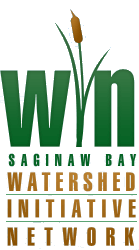Grants: Land Use
Mid-Michigan Community Pathway Project, Shepherd, MI
Jun 2014Mid-Michigan Community Pathway Project – Part of a coordinated effort that will connect the Pere Marquette system with both the Great Lakes Bay Trail (a past WIN investment) and the Fred Meijer Trail, the Mid-Michigan Community Pathway is requesting WIN support to match a pending Michigan Department of Transportation Grant (MDOT) to connect the Village of Shepherd and the City of Mt. Pleasant. The proposed WIN funding will be specifically designated for a bridge system, scenic overlook and interpretive signage that will traverse a wetland area along the path. This path is proposed to be approximately 6.8 miles long.
Birch Run Trolley Line Trail North
Dec 2013
This non-motorized trail construction project will connect the communities of Clio and Birch Run as part of a regional plan for trail connectivity. This project was identified as a primary connection in both the Saginaw Bay Greenways and Nonmotorized Transportation plan as well as the Genesee-Lapeer-Shiawassee plan, both funded by Saginaw Bay WIN. The trail will connect the Birch Run shopping area (one of
Delta College Sustainability Center
Dec 2013
This project supports a rehabilitated facility to be used as the
Freeland M-47 Pathway
Dec 2013
This project contemplates WIN support for the construction of a non-motorized path along M47 in
Pump House Overlook at Midland’s Emerson Park
Dec 2013
This project will re-purpose an abandoned water intake pump house located at
Pump House Overlook at Midland’s Emerson Park
Dec 2013
This project will re-purpose an abandoned water intake pump house located at
Low Maintenance Greening Demonstration Project
Jun 2013
The Geneseee County Land Bank Authority aims to test low maintenance plantings at various sites in the City of
Dow Diamond LED Light and Occupancy Sensor Additions
Jun 2013This project, proposed by the nonprofit Michigan Baseball Foundation, includes the purchase and installation of new LED lights and occupancy sensors at Dow Diamond in Midland. Dow Diamond is the home of the Great Lakes Loons minor league baseball team. This effort is part of Dow Diamond’s effort to reduce energy use, water use, and waste by 50% by the year 2020. It is estimated that the project will cut down on energy usage by 2.8% yearly.
Potential Conservation Area Analysis for Genesse, Lapeer and Shiawasse Counties
Nov 2012Using a science-based approach to identify “potention conservation areas”, the projected prioritized those important places in Genesee, Lapeer and Shiawassee counties that, with proper management, will have their ecological integrity maintained. The primary audience for this project was conservation organizations, so that they can more effectively and efficiently identify and protect sites of imiportant ecological integrity. This project was an additional component of the previously WIN – funded GLSGreenlinks project.
Urban and Community Forestry / Saginaw Bay Watershed Region
Jun 2012This project, developed by Global ReLeaf of Michigan, supports a growing a network of communities in the Saginaw Bay region that are focused on maintaining and establishing urban tree programs. This grant supports quarterly meetings for watershed communities, provision of technical assistance to communities, the utilization of native and local provenance trees for street tree replacement and park plantings, and the engagement of volunteers in tree inventories, tree boards, and tree plantings.
Flint River Priority Lands, Landowner Connection and Enrollment Program
Nov 2011This project builds on previous WIN investments including the Genesee, Lapeer, Shiawassee Greenlinks Project and Metamora Horse Country Project. Fashioned after WIN-funded work at Little Forks Conservancy in 2004, this effort will target and map strategic lands in the upper Flint watershed that are most strategic for conservation. In addition, the program will develop that region’s first enrollment program (registry) of landowners interested in conservation, but not yet ready to commit to permanent conservation. This project also seeks to implement the “bioreserve” program, which will establish biological inventories on properties of willing landowners.
Place Based Blended Learning
Nov 2010This project, sponsored by University of Michigan – Flint intends to fund the development of a series of on-line short courses focused on improving the capacity of schools (particular focus on urban schools) to conduct place-based education. Place-based education promotes learning that is rooted in local, unique history, environment, culture etc… that is in a student’s own place or immediate geographic location. This project is a part of an ongoing effort at U-M Flint that partners the university with the Great Lakes Stewardship Initiative in a 10-year program to promote and address urban environmental stewardship needs. The online course will focus on sustainability – the relationship of the environment, community, and economy – and will offer continuing education credits through UM-Flint for successful completion of the courses.

